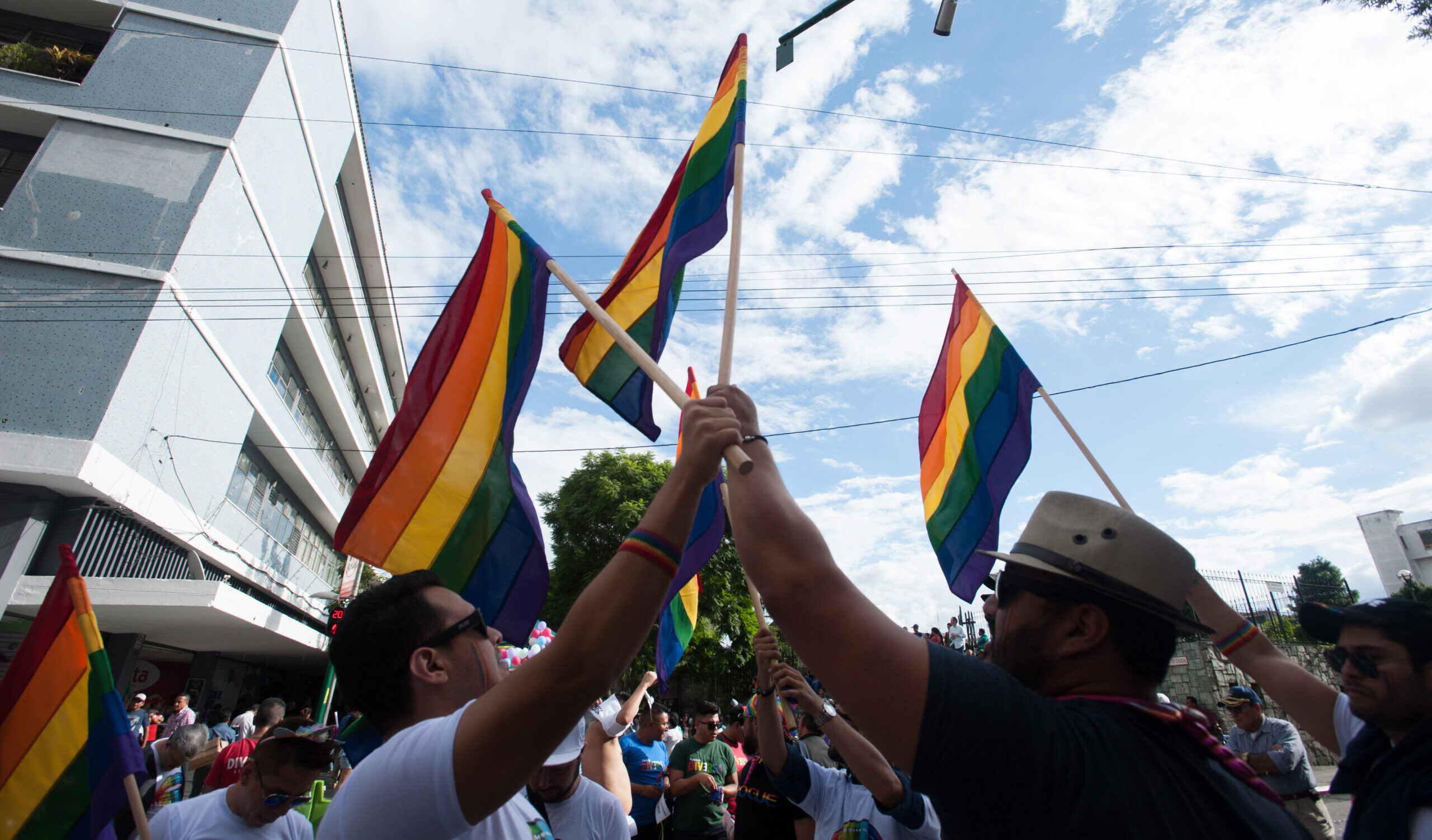Lea la versión en español de esta opinión.
Every time a community organises, learns, and cares for its members, it is exercising power. That power doesn’t always make the headlines, but it is still there. We see it when someone speaks out, when one person defends another against discrimination, or when a group gathers to imagine something different.
This idea — the power of communities — was the theme of this year’s International Day Against Homophobia, Transphobia and Biphobia (IDAHOBIT), which took place on 17 May, and it is also what inspires the project we at SOMOS CDC have recently launched in Honduras, Guatemala, and El Salvador.

The project – ‘Protecting LGBTQI+ Movements and Organizations’ – is an initiative we are developing jointly between us, COMCAVIS TRANS, Asociación LAMBDA, and FLACSO Honduras , with support from the International Development Research Centre (IDRC). We are also part of the IDS-led ‘Solidarity Network’, which brings together six IDRC-funded projects researching gender backlash in a community of practice (of which ours is one). Although we are still in the early stages of our own project, we are already laying the groundwork for what we hope to achieve.
Why is solidarity needed?
In northern Central America, LGTBQI+ individuals face widespread violence, structural discrimination, and a lack of effective legal protection. In Honduras, the situation is dire, with hundreds of unresolved murders, exclusion from basic services, and legislative setbacks driven by conservative groups. In Guatemala, legal recognition is absent, hate crimes are on the rise, and restrictive laws loom, though recent dialogue with the government offers a narrow path forward. In El Salvador, state control has intensified through security policies that disproportionately affect historically marginalized groups, while stigmatizing discourse and arbitrary detentions target human rights defenders. Across all three countries, diverse identities remain highly vulnerable amid a fragile human rights environment.
Strengthening LGBTQI+ organisations
In response to this closure of civic spaces and the rise of hate speech in the region, our project aims to strengthen LGBTQI+ organisations. To do this, we will investigate three key areas:
- The current state of laws and policies affecting access to justice for LGBTQI+ people.
- Public opinion regarding the rights of this population.
- The narratives and discourses used by actors who oppose these rights.
We want to better understand these issues so we can propose concrete and useful strategies and changes. And an important aspect: the research will be conducted by the activists themselves, who will receive training to carry out research from their own territories and realities.
Activists as researchers
Through diploma programmes and training spaces, activists from the three countries will become the researchers. We are not looking to impose an external perspective, but rather to build knowledge from within — from those who live the challenges and resistances every day.
In addition, we have developed a Code of Ethics and a Security Manual, because we know that researching these topics can be sensitive and risky. We look out for one another as members of this project. That, too, is a way of building community.
What’s next?
Now, we are building the foundations: strengthening capacities, refining methodologies, and preparing for fieldwork. Next will come interviews, surveys, or meetings with external actors.
But even in this early phase, we believe our approach already makes a difference. We are Investing in a model in which LGBTQI+ communities are not merely sources of data or beneficiaries: they are protagonists. They are the ones conducting the research, analysing the findings, and proposing solutions.
Care as power
During Pride month and for IDAHOBIT 2025, we want to remind everyone that the power of communities is not measured only in protests or campaigns. It lies in how we care for each other, how we listen, and how we learn together.
Our project is a commitment to that power — the power that transforms from below, from the collective, from the everyday.




